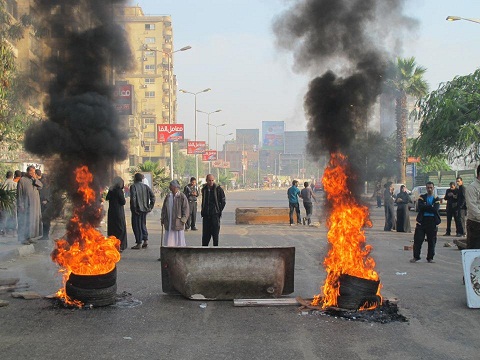CAIRO: Algeria decides not to invite Egypt to the upcoming Algiers International Book Fair, raising tension levels between the two countries to a new level.
According to Mohamed Saber Arab, head of the General Egyptian Book Organization, all other Arab countries have been invited except Egypt.
The Algiers Book Fair is slated for this October.
Arab said in a statement issued on Wednesday that ignoring Egyptian publishers will only harm Algerian readers, as “Egyptian publishing houses are responsible for 40 percent of published work in the Arab world.”
He called on the Algerian government “to reconsider its decision that will harm the relations between the two countries on an official level and [among the people as well].”
However, according to Algerian daily Chorouk, Algiers International Book Fair Commissioner Ismail Ameziane has argued that the absence of Egyptian publishers from this cultural event will have little impact on the fair, saying that more than 100 Arab publishers from Syria, Lebanon, Saudi Arabia, Jordan, Libya, Tunisia and Morocco have confirmed their attendance.
Dalia Ibrahim, vice president of publishing powerhouse Nahdit Masr described the incident as “painful”.
“The financial revenue we receive from our sales in the Algiers Book Fair is almost nothing, so publishing houses like Nahdit Masr won’t be affected greatly by this on the financial level, but on the national and Arab level, this is a great loss,” Ibrahim told Daily News Egypt.
Tensions between Egypt and Algeria escalated in November 2009, following two world cup qualifiers which ended with Algeria going to South Africa following a 1-0 win in Sudan.
The Algerian team bus was attacked by Egyptian fans in Cairo before the first qualifier, while Egyptian fans accused their Algerian counterparts of attacking them on the streets of Omdurman after Algeria won the game.
This sparked riots on both sides and launched the beginning of a fierce media war, which strained diplomatic ties.
Ameziane said that “the decision to exclude Egyptian publishers is a natural reaction to the spiteful campaign launched by the Egyptians through their satellite channels against the Algerian people. They have insulted our symbols and the Algerians didn’t overcome this crisis”.
Ibrahim told Daily News Egypt, “The words and actions of Egyptian intellectuals and media personalities shouldn’t affect the decisions of government and cultural institutions.”
Ameziane also justified the decision by saying that his institution cannot protect the Egyptian delegation in case of trouble with zealous youngsters who could lose their control, which, he said “is very understandable”.
This week, Al-Ahly football team filed a complaint to the Confederation of African Football (CAF), accusing Algerian supporters of attacking them during their trip to Tizi Ousou in Algeria to play against JS Kabylie.
Following the warm reception of Egypt’s top team in an official bid to ease tensions, the team bus was attacked by Algerian supporters of the home club, before and after the last Saturday’s match.
Al-Ahly also complained against the behavior of Kabylie fans on the field, claiming that they pelted the players with bottles and fireworks and deliberately distracted goalkeeper Sherif Ekrami.
According to filgoal.com, Algerian JS Kabylie chairman Mohand Cherif Hannachi offered his apologies to the Egyptian delegation following the incident.
“How can a small problem in football lead to such a rift between two important countries like Egypt and Algeria?” exclaimed Ibrahim.
“We need to rise above these petty problems and unite on the cultural, economic, national and Arab levels,” she added.
On the other hand, Arab said that despite Algeria’s position, Egypt plans to invite Algeria to its annual Cairo International Book Fair, scheduled for January 2011.
Ibrahim hailed the decision. “We as a people and a country are opening our arms to Algeria and welcoming them. If they choose to refuse us, then that’s their responsibility,” she said.
Algeria had boycotted the Cairo book fair in 2010.


